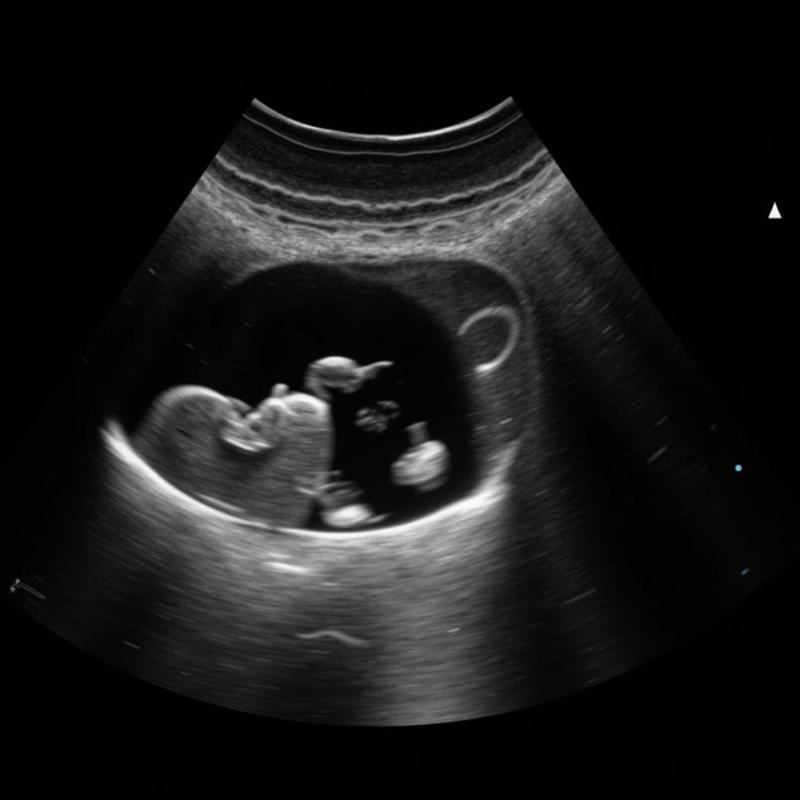Knowing when to ultrasound a pregnant dog is crucial for monitoring her health and the puppies’ development. This procedure provides valuable insights into the pregnancy, allowing veterinarians and breeders to make informed decisions about care. In this article, we’ll explore the optimal timing for canine pregnancy ultrasounds in the United States, discussing the benefits, procedures, and what to expect during each stage.
Understanding the Importance of Canine Pregnancy Ultrasounds
Ultrasounds are a safe and non-invasive way to confirm pregnancy, assess fetal viability, and estimate litter size. Unlike palpation, which can be less accurate and potentially stressful for the dog, ultrasounds offer a clear visual representation of the pregnancy. This is particularly helpful for first-time dog owners or those with breeds prone to complications.
Optimal Timing for a Canine Pregnancy Ultrasound
The best time to perform an ultrasound on a pregnant dog is typically between 25 and 35 days after breeding.
Early Detection (Around 25 Days)
An ultrasound around day 25 can confirm pregnancy and detect fetal heartbeats. This early detection provides peace of mind and allows for proactive planning for the upcoming litter.
Fetal Development Monitoring (Around 30 Days)
Around day 30, the ultrasound can provide more detailed information about fetal development, including spine and limb formation. This is a critical period for monitoring fetal health and identifying any potential abnormalities.
Litter Size Estimation (Around 35 Days)
By day 35, the puppies are large enough to allow for a reasonably accurate litter size estimation. This information helps breeders prepare for the birth and ensure adequate resources for each puppy.
 Canine Pregnancy Ultrasound at 25 Days
Canine Pregnancy Ultrasound at 25 Days
What to Expect During a Canine Pregnancy Ultrasound
The procedure is generally quick and painless. The veterinarian will shave a small area of the dog’s abdomen and apply ultrasound gel. A transducer is then used to scan the abdomen, producing images on a monitor. The dog may need to be restrained gently, but sedation is rarely necessary.
Interpreting Ultrasound Results
A veterinarian trained in canine reproduction will interpret the ultrasound images. They will look for signs of fetal heartbeats, assess fetal development, and estimate the number of puppies. They will also check for any abnormalities or signs of complications.
Preparing Your Dog for an Ultrasound
No special preparation is typically required for a canine pregnancy ultrasound. However, it’s best to avoid feeding your dog a large meal right before the appointment to prevent stomach contents from obscuring the ultrasound images. Keeping the dog calm and comfortable during the procedure is also important.
What Happens After the Ultrasound?
After the ultrasound, the veterinarian will discuss the findings with you and provide recommendations for prenatal care. They may schedule follow-up ultrasounds if necessary to monitor the pregnancy’s progress.
FAQs
- How much does a dog pregnancy ultrasound cost? The cost of a canine pregnancy ultrasound can vary depending on your location and the veterinary clinic. It’s best to contact your local veterinarian for a price estimate.
- Are there any risks associated with a dog pregnancy ultrasound? Ultrasound is considered a safe procedure for pregnant dogs. It uses sound waves, not radiation, to create images.
- Can I tell if my dog is pregnant without an ultrasound? While there are some physical signs of pregnancy in dogs, such as enlarged nipples and increased appetite, an ultrasound is the most reliable way to confirm pregnancy.
- When can I feel my dog’s puppies moving? You may be able to feel your dog’s puppies moving (quickening) around day 45 of pregnancy.
- How long is a dog’s pregnancy? A dog’s pregnancy typically lasts around 63 days, or about nine weeks.
- What should I do if I suspect my dog has complications during pregnancy? Contact your veterinarian immediately if you notice any unusual signs or changes in your dog’s behavior during pregnancy.
- When should I schedule my dog’s next vet appointment after the ultrasound? Your veterinarian will advise you on the best schedule for follow-up appointments based on the ultrasound findings and your dog’s individual needs.
Conclusion
Knowing when to ultrasound a pregnant dog is a key part of responsible pet ownership. How much does dog abortion cost? An ultrasound between 25 and 35 days after breeding provides crucial information about the pregnancy, allowing for early detection of potential problems and better management of prenatal care. By understanding the importance of this procedure and working closely with your veterinarian, you can help ensure a healthy pregnancy and a happy, healthy litter of puppies. Remember, consulting with your veterinarian is essential for tailored advice based on your dog’s breed, age, and overall health. This ensures the best possible outcome for both the mother and her puppies. Pregnant dog due date calculator can help you. Are you curious how to tell if a female dog has mated? Or maybe you’re wondering can a dog have just one puppy? Also check out bellylabs pregnancy test for dogs reviews.
Beautdogs.us is your premier online destination for comprehensive and reliable information on dog breeds, dog care, and dog products specifically tailored for the US market. We offer expert advice, product reviews, and valuable resources for both new and experienced dog owners. From puppyhood to senior care, Beautdogs.us is committed to helping you provide the best possible care for your furry companion. Contact us today for any questions or inquiries! Email: [email protected], Phone: +1 501-555-7529.